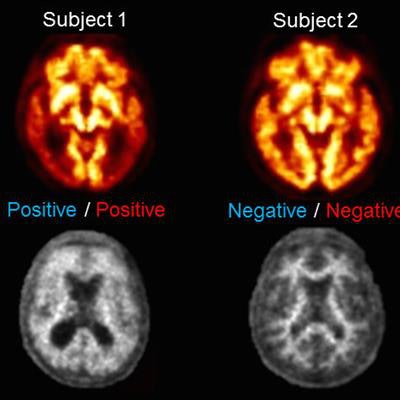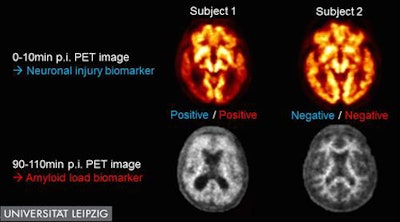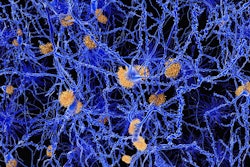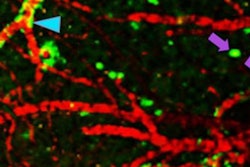
A PET protocol in which two scans are conducted after injection of one radiopharmaceutical holds the promise of detecting two clinical markers for Alzheimer's disease, according to research presented at the Society of Nuclear Medicine and Molecular Imaging (SNMMI) annual meeting this week.
Researchers from University Hospital Leipzig in Germany performed dual-time-point PET scans with an F-18 florbetaben (FBB) radiopharmaceutical. The scans involve the injection of a single dose of the radiotracer, after which two scans are performed, one to observe blood flow and the other to measure the amyloid burden in the brain -- both of which are markers for neurodegenerative disease.
The group studied 112 individuals with an age range of 62 to 82 years: 41 were diagnosed with mild cognitive impairment, 50 had probable or possible Alzheimer's disease, and 21 had another type of dementia. PET scans with the dual-time-point F-18 FBB protocol were performed during the first 10 minutes of the procedure and again from the 90- to 110-minute mark.
The researchers then performed quantitative and visual analyses of PET data, determining both neuronal injury and amyloid load. In all, 39% of the subjects with mild cognitive impairment, 37% of those with possible Alzheimer's dementia, and 72% of those with probable Alzheimer's dementia had at least one positive biomarker.
 Images of PET with dual-time-point florbetaben radiotracer of two cognitively impaired subjects. While subject No. 1 (left) was judged as positive for both neuronal injury and amyloid load biomarker, both Alzheimer's disease biomarkers were negative in subject No. 2 (right). Image courtesy of Henryk Barthel et al, University Hospital Leipzig, Leipzig, Germany.
Images of PET with dual-time-point florbetaben radiotracer of two cognitively impaired subjects. While subject No. 1 (left) was judged as positive for both neuronal injury and amyloid load biomarker, both Alzheimer's disease biomarkers were negative in subject No. 2 (right). Image courtesy of Henryk Barthel et al, University Hospital Leipzig, Leipzig, Germany.The group believes the findings indicate that dual-time-point F-18 FBB PET could supplement diagnostic dementia workups by providing essential information about Alzheimer's pathology in a convenient and clinically useful manner, the SNMMI reported in a press release.



















